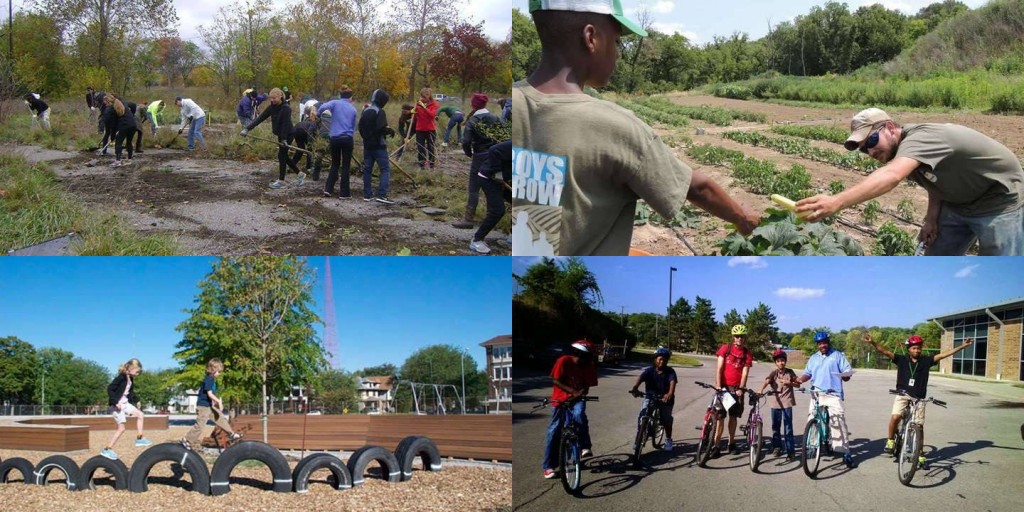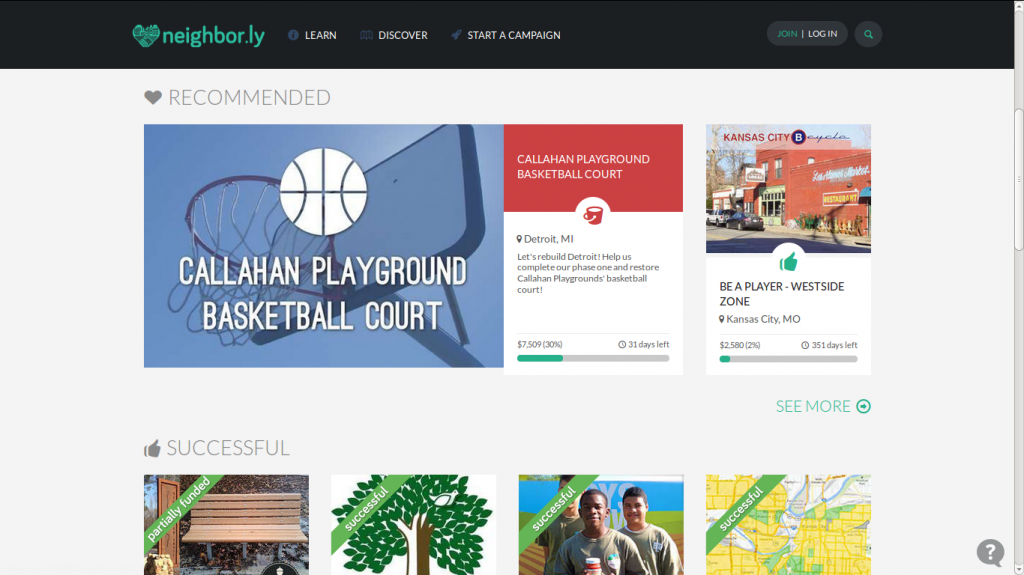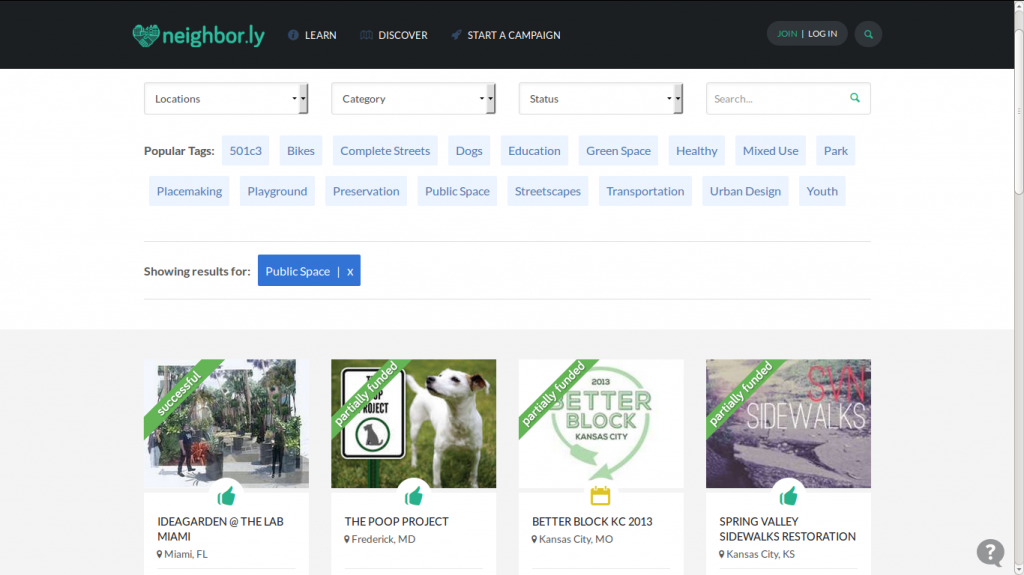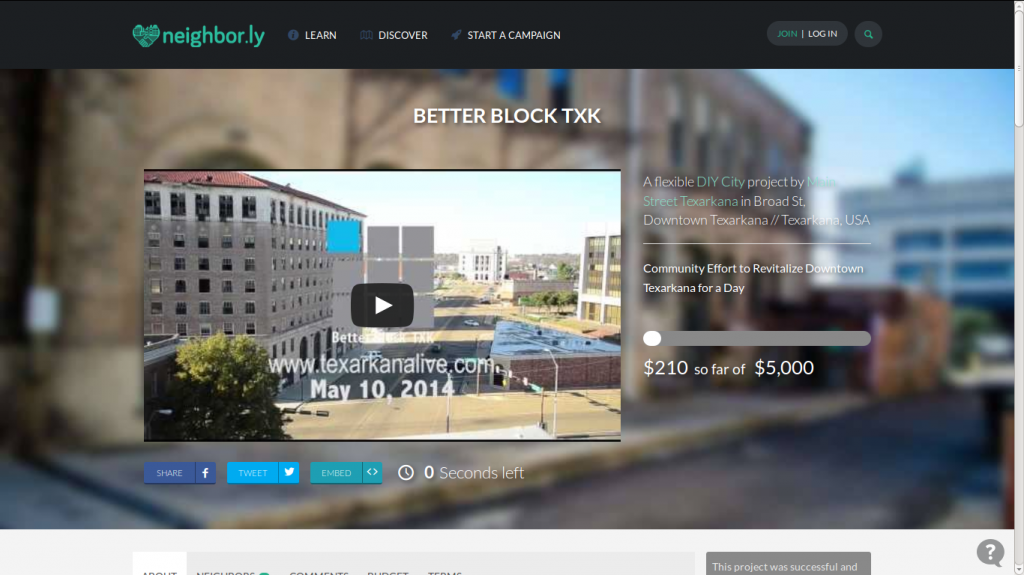 Neighbor.ly is about supporting altruism at a local scale through on-line tools. While it has a similar structure to other donor sites, it focuses on projects that are intended for a specific location and are started by certain organizations. Neighbor.ly privileges quality and close connections with local structures.
Neighbor.ly is about supporting altruism at a local scale through on-line tools. While it has a similar structure to other donor sites, it focuses on projects that are intended for a specific location and are started by certain organizations. Neighbor.ly privileges quality and close connections with local structures.
Not every person can start a project in neighbor.ly. Only neighborhood groups, governmental entities and some qualified non-profits can submit their ideas and raise funds through neighbor.ly. Individuals should team up with such organizations to submit projects. The restriction assures a minimum level of quality and of support for the projects. This is a distinctive characteristic of neighbor.ly that prioritizes quality over quantity.


With a functionality called challenge match Neighbor.ly also re-invented a classical fund-raising strategy. Challenge match gives the users the possibility of offering an amount of money that they are willing to contribute only if other users match their challenge, i.e. the offered donation will be granted only if others are also contributing. If the total amount is not met, the challenger will be refunded remainder less fees and expenses. This strategy delivers extra motivation among the community of donors and creates the idea of solidarity, even within the context of an on-line platform.
Neighbor.ly is not only about facilitating financial transactions. They also want to keep some transparency and encourage the project initiators to invest the donations as claimed in the project’s description. Thus, a requirement for any project initiators is to guarantee that they are going to use proceeds for the funds raised. While neighbor.ly can not be held responsible for the expenditure of the raised funds, the proceeds requirement still creates a minimum level of trust among donors, and responsibility among the project initiators.
With neighbor.ly the altruism does not end after a project is funded. The web application itself has been open sourced for anyone who wants to start a neighborhood donor service. This is in itself a great donation for any organization or city interested in starting a local donor schema. This makes of neighbor.ly not only an inspiring project, but also a tool that can help you to turn that inspiration into actions.
